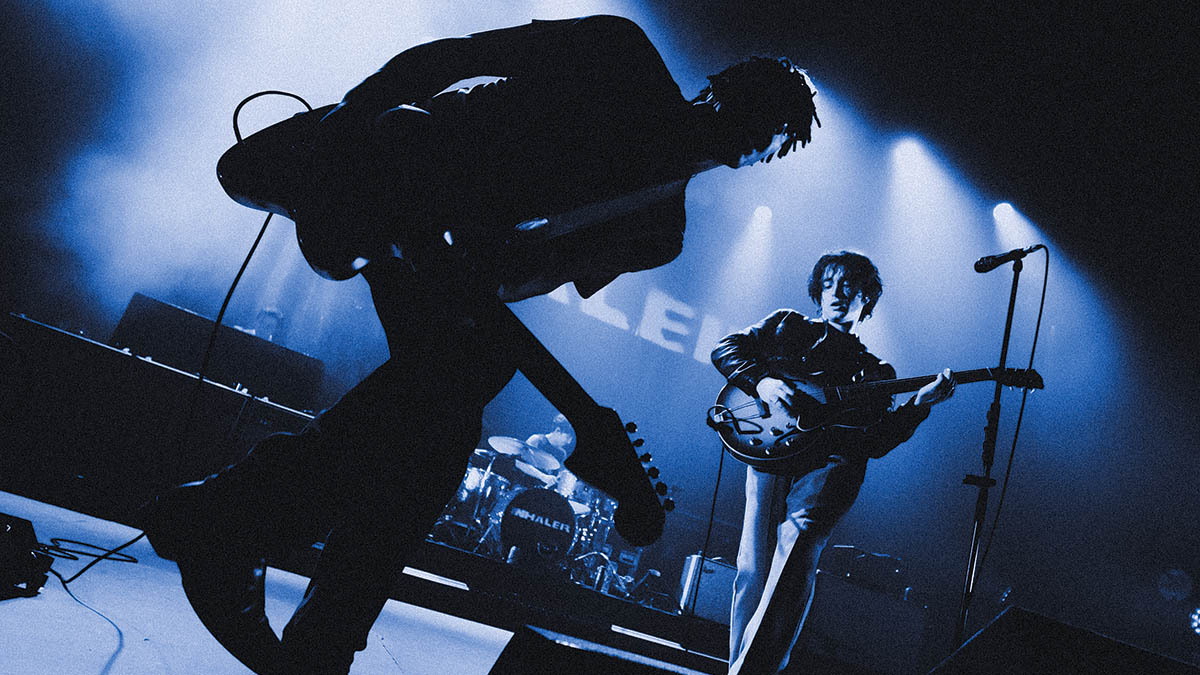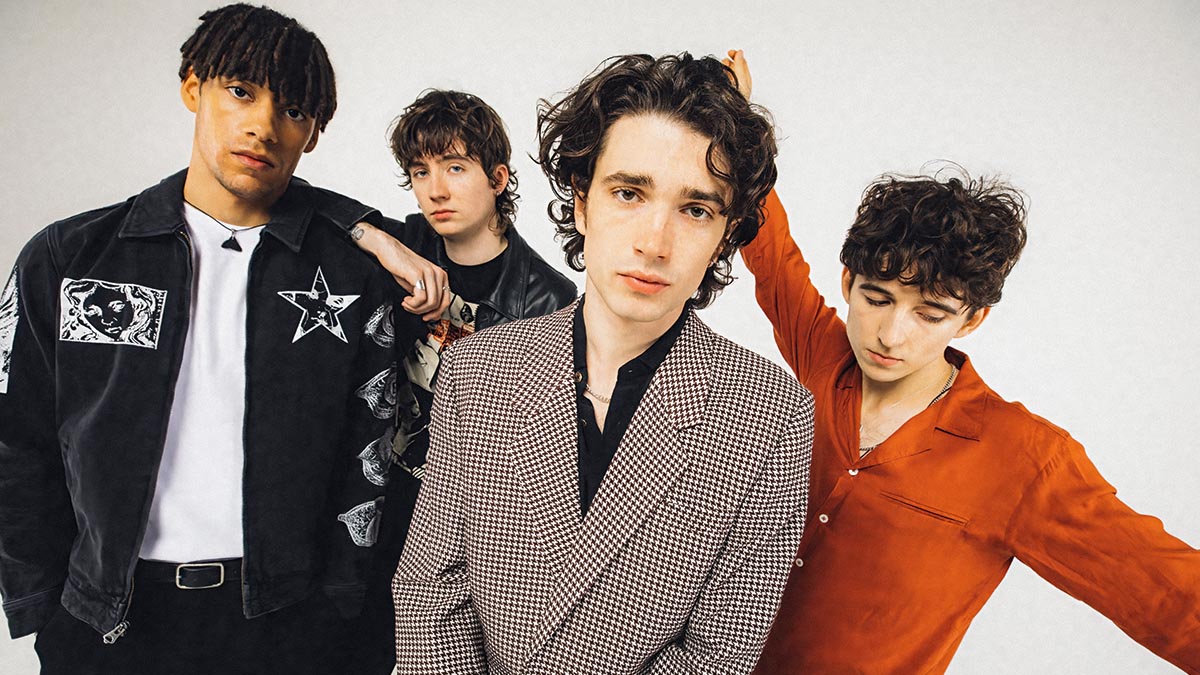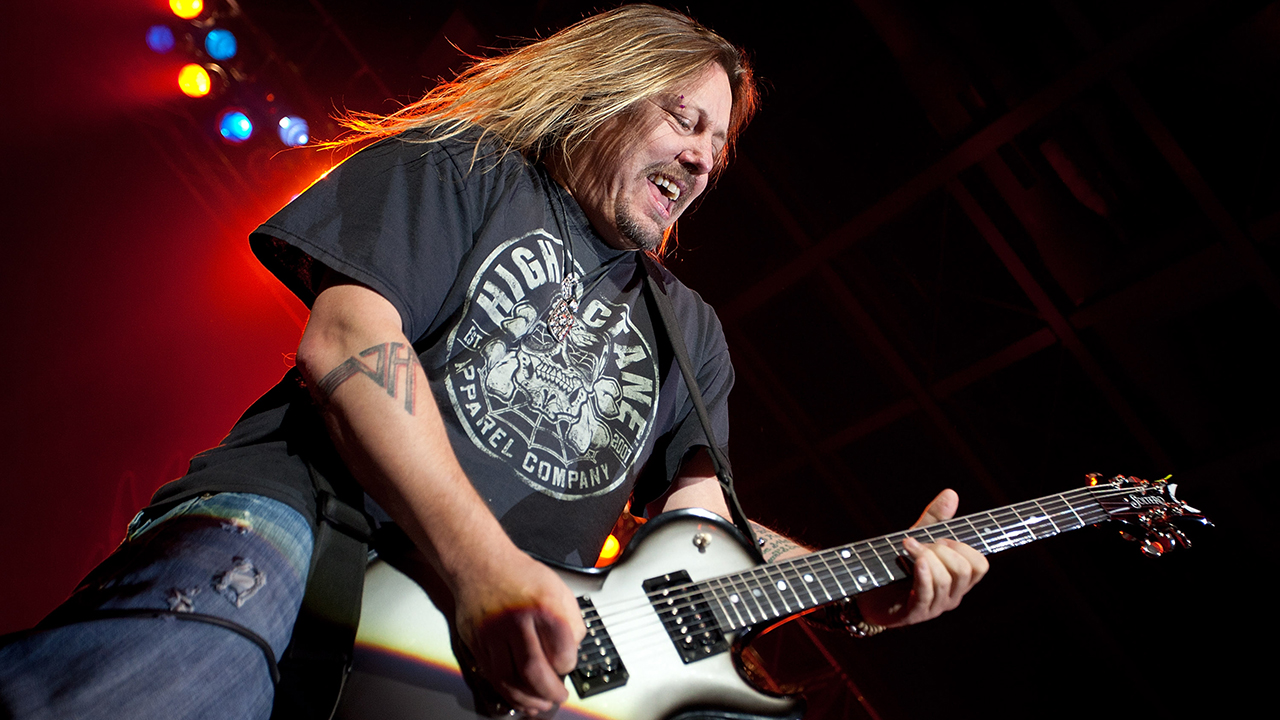Inhaler’s Elijah Hewson and Josh Jenkinson: “People are like, ‘Oh that riff sounds a bit like the Edge,’ and it’s like, ‘Yeah, well who f**king cares? The Edge is good!’”
What do you do if your dad is Bono and you want to make a name for yourself? Well, do as Elijah Hewson does. Don't make a secret of it, write the songs, find your sound, and build an audience...

All the latest guitar news, interviews, lessons, reviews, deals and more, direct to your inbox!
You are now subscribed
Your newsletter sign-up was successful
When their debut album It Won’t Always Be Like This entered the album charts on both sides of the Irish Sea at #1, Inhaler established themselves as the future of mainstream guitar music. Eager to capitalise, the Dublin workaholics took just one day off between the end of their last tour and starting work on the follow-up.
“We were trying to catch up on time so it was fairly hectic,” says singer/guitarist Elijah Hewson. Eli and fellow axeman Josh Jenkinson are responsible for Inhaler’s epic, delay-soaked electric guitar sounds. The new album Cuts & Bruises arrives as one of 2023’s most anticipated releases, and the band felt the pressure as they worked on it. Then there was the small matter of living up to the family name – Eli’s dad is one Paul Hewson, better known as Bono.
Any Irish band majoring in anthemic rock is going to be asked if they’re the new U2, but Inhaler are the only ones who might gain the title through the line of descent. Eli and Josh are relaxed about the comparisons, though.
“I think being Irish you just can’t avoid somehow sounding like U2,” muses Eli. “They’ve been around for so long, they’ve influenced so many of our favourite bands, that you can’t avoid that reference. People are like, ‘Oh that riff sounds a bit like the Edge,’ and it’s like, ‘Yeah, well who fucking cares? The Edge is good!’”
“We just make sure not to turn on the dotted eighth delay,” quips Josh, referencing the Edge’s signature setting. “Yeah,” laughs Eli. “We’ve blacked it out on the pedals!”
Like Wolfgang Van Halen, Eli is neither trying to sound like his dad nor trying to hide the connection. “When we were younger we were a lot like more wary of that,” he says. “But now, I don’t know – just whatever sounds good to be honest. If people don’t like U2 they’re certainly not going to like us!”
He is keen to stress, however, that Inhaler have paid their dues like any other band. “We made a big point of wanting to go out and do it by ourselves. We toured the toilets of Ireland and the UK for a long time before we even got management. We thought that was really important.”
All the latest guitar news, interviews, lessons, reviews, deals and more, direct to your inbox!
The band’s other influences are indie mainstays. Josh notes the influence Interpol had on the way they write guitar parts, while Eli absorbed his core influences when the band started out playing covers.
“Those songs that you first cover seem to always be in the way that you play,” Eli suggests. “We used to play a lot of Joy Division as well as Stone Roses and all that Manchester Britpop thing. Bernard Sumner [of Joy Division and New Order] is still my favourite guitar player.”
What Inhaler have in common with U2 is big ambition. “We’ve never made a small-sounding record,” he comments. “I think we started on our fifth record and we’re slowly going backwards – eventually we’ll get to the stripped down demo! We’ve just always had a desire to write songs that feel anthemic and demand a big sound.”
Cuts & Bruises is indeed a huge record, but sounds big with less effort than their debut. “We didn’t have any time to do overdubs!” laughs Josh. “It was like, ‘That take’s good, slap it on!’”
Where in the past they had layered things to infinity, this time they were more sparing. “We went in with the idea to get more for less,” Eli says. “Maybe the individual instruments still sound big, but there’s definitely less stuff with like 100 drums on one track. We wanted to be more thoughtful about what we’re putting in our soup. What we learned after the first album was that if everything’s turned up to 11, then nothing is.”

The band moved quickly, demoing songs live in the studio and then immediately cutting their final parts. Some particularly good demo takes ended up on the final album. Producer Ant Genn recorded a DI from each of their guitars so demo parts could be reamped if necessary.
They were inspired by watching the Beatles’ Get Back documentary. As the pressure mounted throughout the recording process, says Josh, “Get Back showed us you can go through all those struggles of chasing a song, but you’ll get somewhere at the end of it.”
The album is darker than the debut, reflective of the tensions involved in making it. “At the start of the year, when we went in, it was very free,” Josh says. “The pressure was there but it wasn’t looming. It just started looming more and more as the as the year progressed.”
“We felt like our friendship maybe wasn’t flowing as well as it could,” admits Eli. “That’s a really scary feeling when these are people you’ve grown up with. Making music and used to be a hobby and now it’s our job. We’ve got our crew relying on us.
“It just felt like we’d grown up really fast, and you join a band to not grow up, so it was weird.” For all that tension, though, the album is not lacking in euphoric moments. “Even when we’re feeling down, we write happy-sounding songs with major chords,” Eli says. “We still want people to feel elated at our gigs.”
The massive guitar sounds come from two Strymon-heavy pedalboards, although Josh stresses, “You don’t need a massive ’board. Your tone should be good from your fingers and what’s coming out of your amp. Anything else is a bonus.” The guitarists specialise in combining slapback delays with longer quarter-note repeats. “We do a lot of soundscaping stuff,” Josh explains. “It’s never just a delay by itself.”
Josh’s modulation comes mainly from the Strymon Mobius. “We’re loving tremolo at the moment, especially like the really choppy stuff where it’s just a dead signal in the middle.” For the single Love Will Get You There, Josh combined a swell from his Strymon BigSky with the 8-bit mode on his Mobius. “It’s just fun working with bit rates because it’s not something you think to do on guitar.”
The guitar sounds are all real guitar amps, both live and in the studio. Josh records and plays live with a pair of AC30s. As Eli says: “A lot of bands are using Kempers live now but I don’t know if we’d enjoy that.” Josh agrees: “We probably will have to at some point, but you can’t beat feeling the amp hit back at you.”
On this record we wanted a heavier sound. Gibsons are better for getting that fat, really gainy thing so that was what we leaned into
Elijah Hewson
The more muscular guitar sounds on Cuts & Bruises were also a conscious move. “On the first record we used a lot of single-coil stuff,” Eli explains. “On this record we wanted a heavier sound. Gibsons are better for getting that fat, really gainy thing so that was what we leaned into.” He recorded mainly with his Gibson ES-330, while Josh used a Fender Jaguar and an ES-335.
As for the future of guitar music, Eli has only positive thoughts. “Guitar has been around for so long but there’s still so much more to play with,” he says. “It seems to be coming back to the mainstream now. People are trying new things with it and making it sound different, which is really exciting.”
- Cuts and Bruises is out now via Geffen.
Jenna writes for Total Guitar and Guitar World, and is the former classic rock columnist for Guitar Techniques. She studied with Guthrie Govan at BIMM, and has taught guitar for 15 years. She's toured in 10 countries and played on a Top 10 album (in Sweden).





